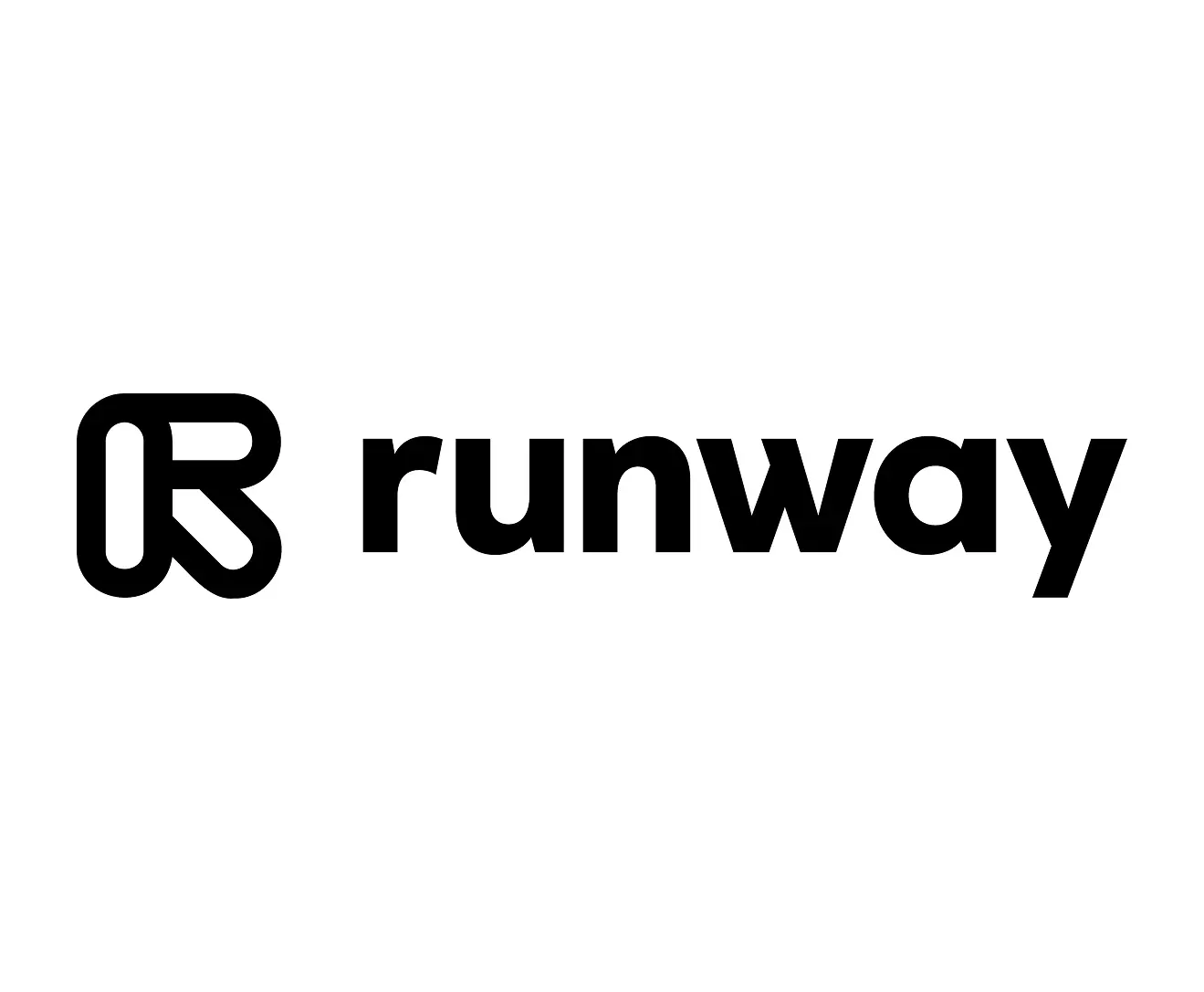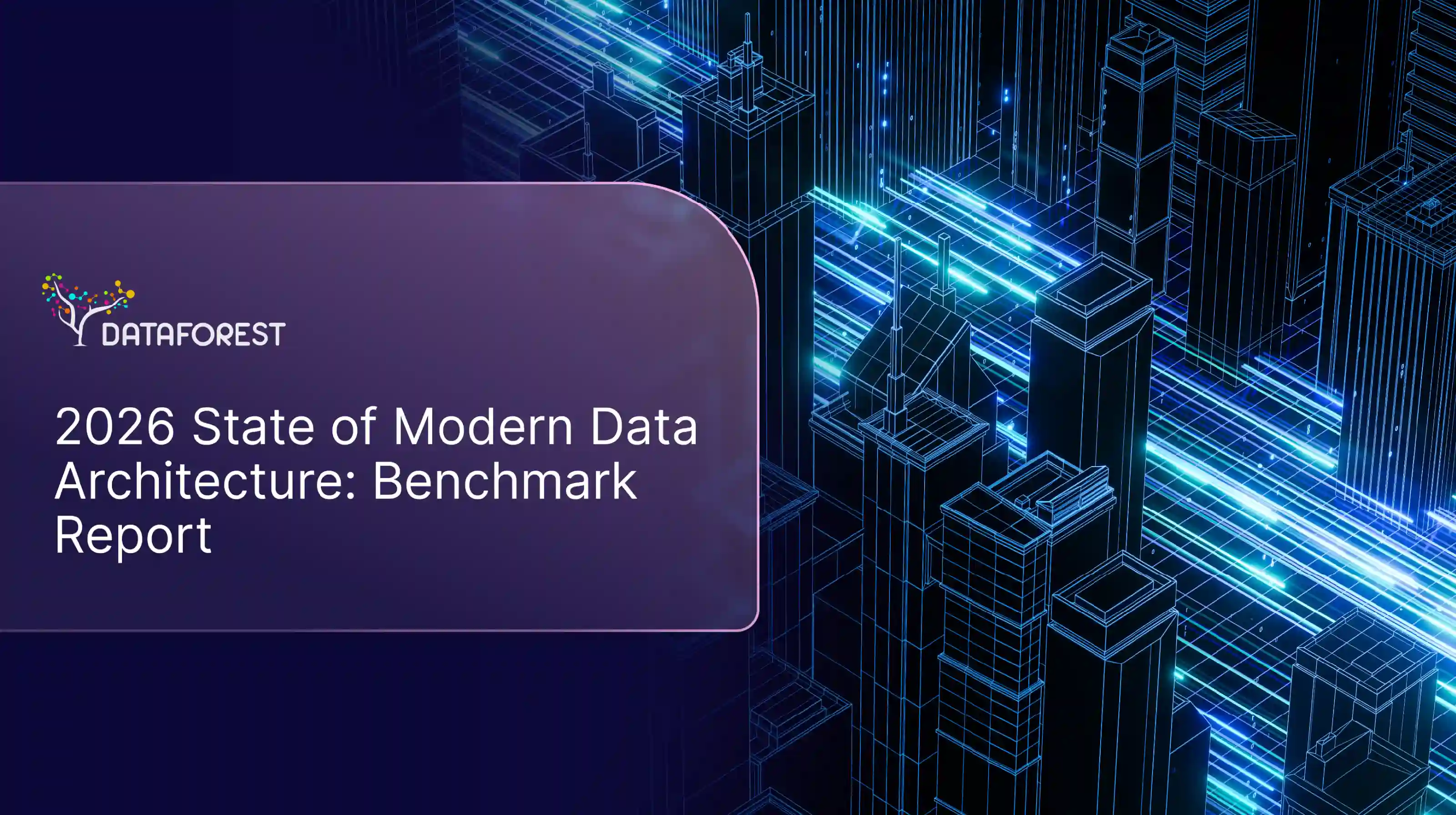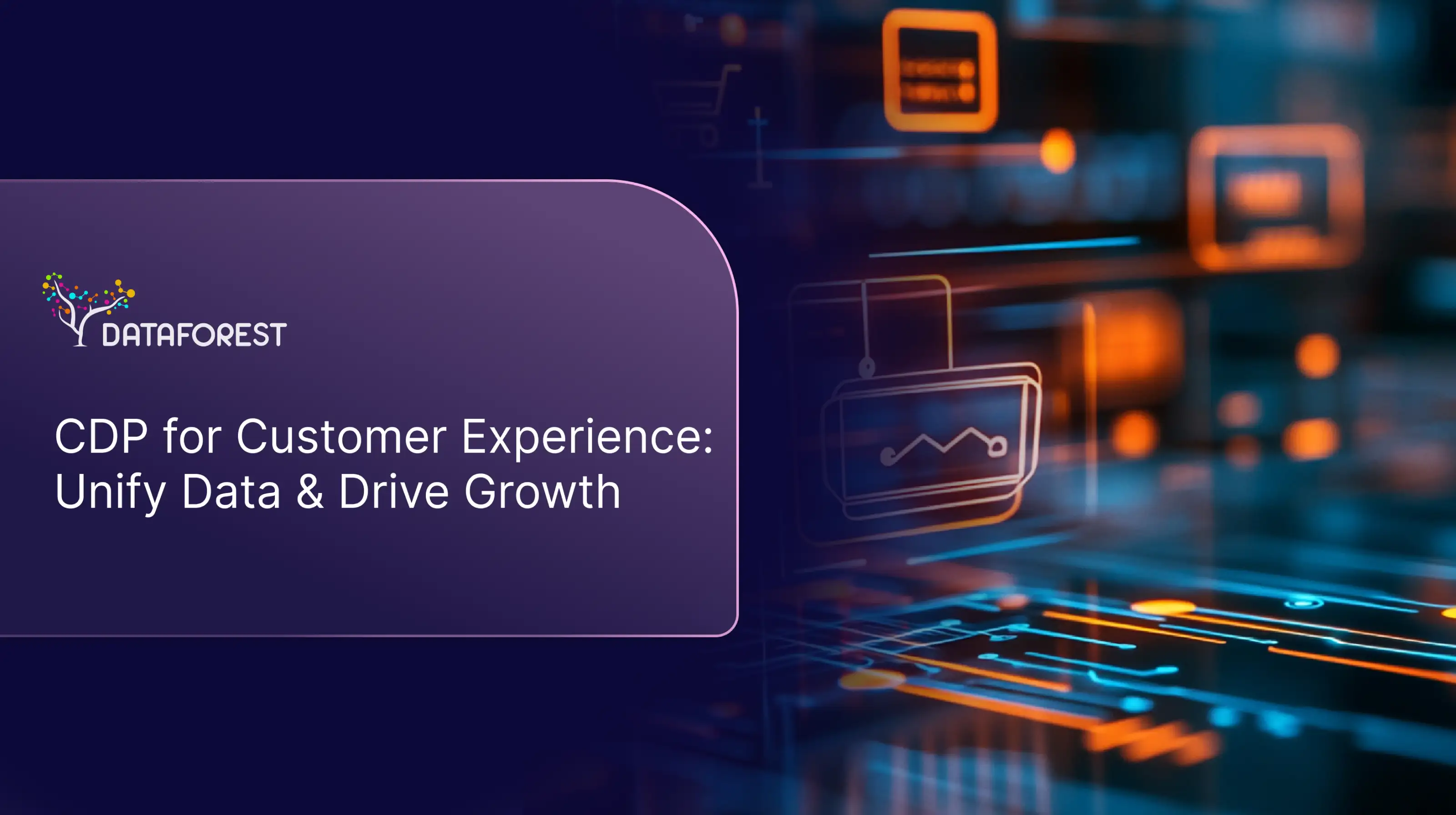Marketing has always been about people—their needs, interests, and motivations. But the truth is, customers are getting tired of generic messages like “We have the best offer just for you!” People want more—the feeling that a brand really understands them and their needs. And that’s where AI comes in.
Personalized marketing with AI is not just a trend but a strategy that helps brands build a deeper connection with their audience. If just a few years ago, personalization was limited to addressing customers by name or making recommendations based on previous purchases, today AI is able to analyze datasets and predict customer behavior with impressive accuracy.
Why do marketers need all this? In a highly competitive environment, when consumers are overloaded with information, the one who speaks the language of the audience, taking into account its context and needs, wins. A personalized approach allows not only to increase conversion but also to form long-term relationships with customers, increasing their loyalty.
But should you really trust these algorithms to create personalized experiences? Can AI tools help marketers not just guess what customers want but also build deeper, more meaningful connections with them to boost customer loyalty and ROI?
Today, artificial intelligence is turning these processes upside down. AI doesn’t just analyze large amounts of information—it learns, predicts, and even makes decisions, helping businesses stay one step ahead. Marketers experiment, test, make mistakes, and again look for new solutions. And if you are reading this now, you are probably also wondering which AI tools are worth trying in 2025.
In this article by DATAFOREST, we have collected 10 best AI tools for digital marketing to compare their pros and cons, helping you make an informed decision. If you need a GenAI consultation, book a call with our consultant to discuss possible use cases for your business.
Why do marketers need these tools?
Marketing has always been about finding the right approach to the customers, and modern clients expect personalized interactions and valuable, relevant content. From user behavior analysis to content creation, these AI platforms help marketers better understand their customers, make more accurate predictions, and achieve better results.
Using artificial intelligence allows marketers to unlock new levels of personalization. For example, instead of sending a general email newsletter, marketers can use AI email marketing tools to send messages that take into account a specific person’s interests, behavior on the website, or purchase history. This is no longer just automation—it is a real understanding of the audience.
At the same time, AI digital marketing tools can process huge amounts of information much faster than a person would. Instead of manually reviewing reports or numbers, marketers receive ready-made insight: which products interest the audience the most, what makes them leave the website without making a purchase, or what types of content generate the best response.
In addition, AI marketing automation tools allow marketing specialists to automate testing and test hypotheses faster. Where it used to take weeks to test the campaign’s performance, today they can run dozens of A/B tests in parallel. This saves time and money while driving better outcomes.
Also, many marketers are even starting to use AI content marketing tools that can write social media posts, generate articles, or create videos and graphic designs. Some specialists use AI tools for affiliate marketing.
In today's world, where consumers are overloaded with information, the ability to stand out and be heard is no longer just an advantage but a necessity. AI tools for marketing can make digital marketing more human, adaptive, and accurate.
Benefits and use cases
Using generative AI tools for marketing allows marketers to work more accurately, faster, and more efficiently, resulting in improved audience engagement, increased conversions, and cost optimization. A recent study by SurveyMonkey discovered that 50% of marketers use AI tools for content creation, 51% use AI for SEO optimization and email marketing, and 41% use it for analyzing data and getting insights.

Here are some of the key benefits of AI tools free plans for marketing:
Personalization
AI is able to analyze large amounts of data about user behavior, from interaction with ads to purchase history. Thanks to this, marketers can craft highly tailored messages according to the interests and needs of individual users. For instance, HuggingFace helps analyze text data and create recommendations based on customer preferences.
Cost optimization
Artificial intelligence enables marketers to analyze campaigns, identify which channels work best, and make real-time changes for advertising optimization and adaptive advertising. Tools such as Webcrumbs will help segment audiences and automatically adapt content to specific groups of users to minimize expenses on low-performing channels.
Informed decision-making
Marketers can easily adapt to market changes or customer behaviors through real-time data analysis. One example of this is LookX, which provides analytics that help marketing specialists adjust content according to trends or as demand fluctuates, decreasing the time required to develop new campaigns.
Automating routine and manual processes
Instead of spending time on routine or manual tasks, marketers can focus on the creative aspects of their work. Tools like HeyGen for video content creation or Synthesia for animation generation help you quickly create high-quality content without the need to involve large teams.
Automating manual and repetitive processes
Marketers can now focus on strategic tasks rather than manual routine tasks. Tools like HeyGen for video content creation or Synthesia for animation generation help marketing professionals quickly create high-quality content without the need to involve large teams.
In-depth customer experience analysis
AI helps track and analyze the customer journey from first contact to purchase. TruConversion allows marketers to see which parts of the customer journey require optimization and which ones generate the most brand engagement. This enhances the user experience and boosts conversions.
Also, let’s discuss some use cases of AI tools in marketing:
Audience segmentation and targeting
Marketers can use AI Video Cut to analyze video content and determine which elements attract the attention of the audience. This enables them to personalize content for various user segments.
Content production
Video creation tools such as Pictory AI produce videos based on written content and enable them to tailor their messages across platforms in record time. This is helpful for brands who want to boost their social media presence.
Strategic planning
Marketers can use Runway to generate visual content and conduct trend analysis to forecast market conditions. This information is beneficial for marketers to determine the most effective approaches to brand positioning.
Top tools for personalized marketing
Hugging Face

Hugging Face is a leading platform for hosting and collaborating on unlimited public models, datasets, and applications. It serves as a central hub where developers, researchers, and marketers can share and access over 1 million pre-trained models across various modalities, including text, image, video, audio, and 3D rendering automation data.
Pros:
- provides access to more than 250,000 datasets;
- access to open-source libraries: tools like Transformers, Diffusers, and Tokenizers support seamless integration and development of machine learning models;
- marketers can find datasets to automate marketing processes;
- offers many models and datasets, reducing the need to build from scratch.
Cons:
- code is not always accurate;
- some users reported bugs.
Pricing: free access to public models and datasets; Pro account at $9/month.
Client Ratings: 4.2/5 on Gartner.
Wondercraft

Wondercraft is one of the AI tools for content marketing. It is an innovative audio production platform for podcasters, marketers, educators, and businesses to create audio ads, meditations, podcasts, and audiobooks without the need for traditional recording setups. With its AI assistant, creators can generate scripts for various audio content. It also provides a collection of AI sound effects to create custom audio effects in seconds. Wondercraft has a library of 500+ human-like voices, covering various languages, accents, and emotions but at the same time, it allows creators to clone their own voice for a more familiar touch.
Pros:
- 500+ human-like voices;
- supports 30+ languages and covers different accents and emotions;
- royalty-free music for commercial use;
- premium feature to clone your own voice.
Cons:
- minor errors in script generation;
- limited free plan;
- advanced features like personal voice clone are available only on paid plans.
Pricing: free plan available, includes 40 standard voices and access to 10 tracks and 10 AI-driven sound effects; Creator plan for $35/month includes 1 personal voice clone and 300+ premium voices.
Client Ratings: 5.0/5 on Product Hunt.
AI Video Cut

AI Video Cut is an AI-powered video editing tool designed to turn long videos into catchy short-form content, such as YouTube Shorts, TikToks, video ads, and trailers. It enables marketers to generate 100% viral-ready content in HD quality with their ready-to-use and custom prompts. It’s perfect for content creators, marketers, and businesses aiming to enhance their online presence with minimal effort.
Pros:
- AI prompts for videos in any language;
- automatically detects speaker’s faces;
- custom video duration with options for 7, 15, or 25 phrases;
- generates video captions.
Cons:
- limited manual editing control;
- AI transcripts are not 100% correct and need proofreading.
Pricing: free plan includes 50 minutes one-time and SD Quality and is limited to 30 minutes of file length and 2 prompts on trailer and topics; Starter plan for $9 per month includes 150 minutes, HD quality, and full access to prompts collection.
Client Ratings: 4.6/5
Webcrumbs

Webcrumbs is an open-source AI tool designed to streamline front-end development by converting images and text into ready-to-use code components. Marketers and creative specialists can use Webcrumbs to speed up their workflow and bridge the gap between design and code implementation.
Pros:
- automates the conversion of design elements into code;
- reduces manual coding time;
- suitable for small marketing teams.
Cons:
- generated components require additional customization to meet specific project needs.
Pricing: basic free plan available; Pro plan at $9/month per seat.
Client Ratings: 1.500+ Stars on GitHub
HeyGen

HeyGen is an AI-powered platform to generate videos without video editing skills, professional cameras, or video staff. All it takes is to choose an avatar and write a script, and HeyGen will create a video in just a few minutes. It is ideal for small businesses, new content creators, and creative marketing agencies looking to streamline their content optimization and creation workflow.
Pros:
- over 100 realistic and customizable avatars;
- lip-sync functionality in more than 175 languages.
Cons:
- limited advanced editing features;
- minimal integration with other tools.
Pricing: free plan includes 3 videos per month; Creator plan at $29/month.
Client Ratings: 4.8/5 on Capterra.
LookX

LookX is a generative AI tool for marketing and design. It offers real-time video generation, vocab template, prompt assistant, and style adapter to help creative specialists transform their ideas into content. LookX also allows users to train custom AI models by uploading a series of images with similar styles.
Pros:
- real-time video generation;
- custom model training.
Cons:
- focused on visual content only.
Pricing: free plan available; Subscription from $20/month.
Client ratings: 4.0/5 on Trustpilot.
TruConversion

TruConversion is a software for funnel tracking and optimization. It analyzes what your website and mobile visitors are doing, allowing you to make necessary tweaks to boost your conversions. It provides tools for heatmaps, session recordings, surveys, and form optimization. Designed for marketers and business owners, it helps track customer behavior to boost customer retention and conversions by visualizing interactions and gathering feedback.
Pros:
- easy to use, just copy, paste and optimize;
- integrates with many platforms;
- offers tools for micro surveys and customer feedback collection;
- provides detailed user insights and analytics.
Cons:
- can be expensive for small teams;
- some users complained about customer support.
Pricing: free trial for 14 days; Plans start at $49/month.
Client Ratings: 4.9/5 on AppSumo.
Runway

Runway is an AI-driven visual content creation platform for marketers, designers, and creators. It offers features to help martyrs improve and enhance their creative workflow. Main features include AI-enabled video editing, rotoscoping, inpainting, text-to-image models, AI-driven animation tools, image-to-image, and others.
Pros:
- shared collaboration in real-time across teams;
- browser-based, no developer skill required to install.
Cons:
- limited customization options;
Pricing: free plan available; Standard plan at $15 per user per month.
Client Ratings: 4.2/5 on ProductHunt.
Synthesia

Synthesia is one of the free AI tools for digital marketing. It’s an AI video platform, which helps marketers create high-quality product explainers and turn text to video in minutes. All it takes is to generate a script from a link, dock, or with the help of AI, and customize the video once it’s ready. Users can easily replace the AI avatar, colors, fonts, and layouts.
Pros:
- over 230 AI avatars;
- voiceovers in 140+ languages;
- free AI video generator;
- script can be edited in any language;
- users can create their own AI avatar.
Cons:
- some avatars are unrealistic;
- can’t show realistic human emotions.
Pricing: free plan available; Starter plan at $18/month.
Client ratings: 4.7/5 on G2 reviews.
Pictory AI

Pictory AI is a platform for automating video content creation for ads, branding, and client campaigns. It is designed for marketing agencies, content managers, social media managers, and digital marketers to create professional videos in minutes without extra staff. Main features include text-to-video with AI voices and automatically matched visuals, URL-to-video, transforming long videos into clips, adding captions to videos, and others.
Pros:
- create engaging videos in minutes using the power of AI;
- no video editing experience required;
- text-to-video in minutes;
Cons:
- can't use different audio tracks in a single video;
- limited AI voices;
- images or music aren’t always relevant to the text.
Pricing: free trial available; Starter plan at $25/month.
Client ratings: 4.8/5 on G2 reviews.
AI tools comparison table
Final thoughts: Should marketers trust AI?
Artificial intelligence is rapidly changing marketing, transforming personalization from a boring “Hello, [Name]” to a full understanding of customer behavior. This article by DATAFOREST demonstrates that in 2025, AI tools are not just assistants but full-time members of marketing teams. They analyze gigabytes of data, predict consumer behavior, and create content that resonates with the audience.
Of course, even the best AI tools for marketing aren’t perfect. Many tools have limitations: for example, AI videos still can not show emotions like a real person does, and most automatically generated texts require editing. It’s important to understand that AI is a powerful tool only when used by experienced marketers.
Should marketers fully trust AI? Well, AI-powered marketing tools deliver the best results when their algorithms are combined with human creativity. AI is great at predicting trends, generating content, and automating manual tasks, but without a human-centered approach, brands risk losing their authenticity.
DATAFOREST as a tech vendor can develop and integrate custom GenAI solutions. If you need guidance through this process, please, fill out the form, and our team will contact you soon.
FAQ
Which AI algorithms are best suited for creating personalized content?
Neural networks (GPT, BERT), deep learning models, and machine learning algorithms help create personalized content based on behavioral analysis.
What AI technologies enable UX personalization on websites and mobile apps?
Recommendation systems (e.g., Google AI Recommendations), predictive analytics, NLP-based chatbots, and dynamic A/B tests allow you to adapt the UX to the needs of each user.
What data is used by AI to personalize marketing campaigns, and how is it protected?
AI analyzes purchase history, website behavior, demographic data, and other signals. Protection is provided by encryption, anonymization, and compliance with GDPR and CCPA standards.
Which companies are already successfully applying AI personalization in marketing strategies?
Giants like Netflix, Amazon, Spotify, and Sephora have already adopted AI to personalize recommendations, target ads, and improve customer interactions. AI marketing tools can also help small businesses since these tools can generate videos or craft content without hiring extra staff.
What security measures are used in AI tools to protect personal data in marketing personalization?
The systems implement multi-layered encryption, limited data access, compliance monitoring, and anomaly detection algorithms to prevent leaks.





.svg)
.webp)















